The Grand Celebration of the Nine Emperor Gods in Penang
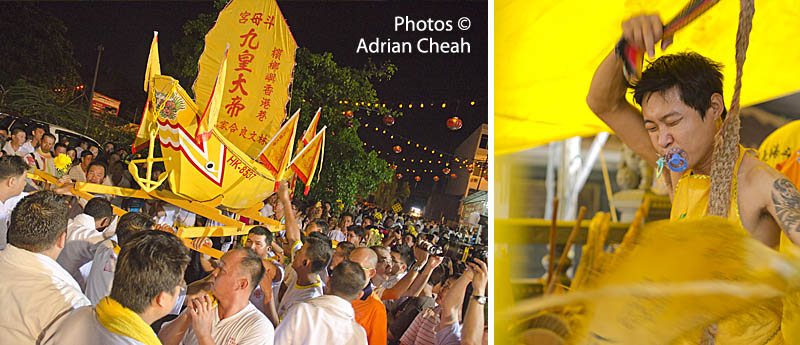
How far would you go to uphold your faith? Would you, with unwavering conviction, embrace a strict vegetarian diet for nine days straight? Could you walk barefoot across burning embers or pierce your cheeks with a long steel rod, enduring pain as an offering of devotion? Or would you rather remain an armchair devotee, watching from afar, content in the safety of your comfort zone?
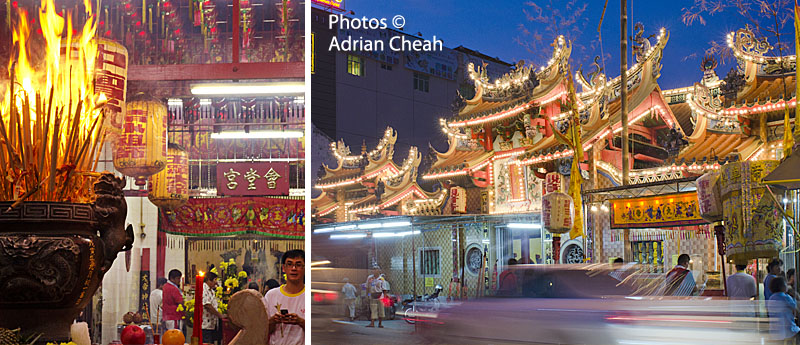
And what of the younger generation? Do they truly grasp the depth of this festival’s meaning, or has it become little more than a passing spectacle, unexplored and unexamined? How many would pause, even for a moment, to seek the purpose behind its rituals? How many would be willing to uncover the essence of these time-honoured traditions and understand what it truly means to make sacrifices for one’s beliefs?

The Nine Emperor Gods Festival is a major annual Taoist celebration observed on a grand scale in Penang, particularly in Butterworth. This vibrant event traces its origins to the southern provinces of China, especially Fujian, the ancestral homeland of many Penangites. Dedicated to the worship of the Nine Emperor Gods, the festival spans nine days, beginning on the first day of the ninth lunar month, and draws devotees on a deeply spiritual journey.
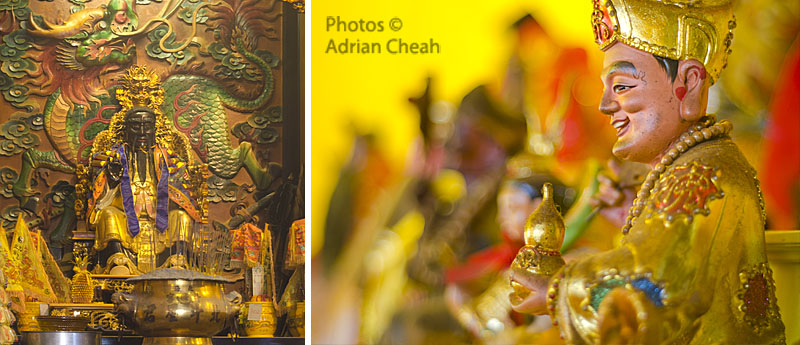

Some local folklore suggests that the Nine Emperor Gods were once mortal heroes, even sea pirates, from the Ming dynasty who sought to overthrow the newly established Qing dynasty. However, this tale is largely regarded as a later myth, likely influenced by the worship of Mazu, the patron goddess of seafarers.
In traditional Taoist belief, the Nine Emperor Gods are not human at all, but celestial beings, the Star Lords of the Northern Dipper (Beidou), sons of Dou Mu, the Primordial Empress and Goddess of the North Star. She governs the movements of the heavens and the fates of mortals, maintaining the delicate balance between life and death.
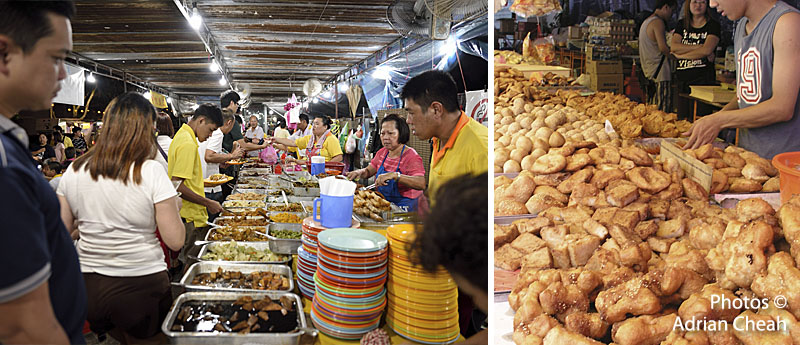
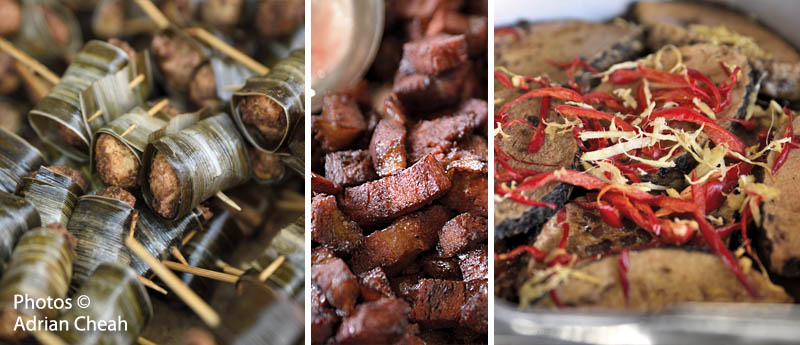
For nine days, devotees observe a strict vegetarian diet to "cleanse" both body and soul. During this period, Penang undergoes a remarkable transformation as numerous stalls offering vegetarian food appear throughout the city. These stalls present a wide variety of inventive and flavourful dishes, many cleverly designed to resemble popular Chinese favourites such as char siew, roast duck, and lor bak. The culinary artistry involved in recreating the appearance, flavour, and texture of these dishes is truly extraordinary.


Most of these stalls are decorated in yellow, a colour that clearly signifies they serve vegetarian food, making it easy for devotees and curious food lovers to spot them. During this period, the city celebrates an abundance of vegetarian delights, even though the realistic appearance of many dishes can make one forget that they are entirely plant-based. When it comes to feasting, Penangites are ever enthusiastic, always ready to indulge in the creative offerings that accompany this vibrant celebration.


On the eve of the ninth moon, temples dedicated to the Nine Emperor Gods hold solemn ceremonies to invoke and welcome the deities. According to tradition, processions begin from seafronts or riverbanks to welcome the deities by water. Crowds of devotees, dressed in white as a symbol of purity, gather with incense and candles, their anticipation almost tangible. As they await the arrival of the Star Lords, a deep sense of reverence fills the air. When the gods are believed to have arrived, the devotees joyfully escort them to their respective temples, marking the beginning of the sacred nine-day celebration.


The Tow Boo Kong Temple, located at the northern end of Jalan Raja Uda in Butterworth, is one of Penang’s largest temples dedicated to the Nine Emperor Gods. What began as a modest attap-roofed shrine in the early 1970s has evolved into a magnificent architectural landmark. Its present form was completed in 2000, with the addition of its grand archway in 2009.

During the nine days of the festival, the temple becomes a vibrant centre of activity, with a full programme of events organised by the temple authorities. The grounds take on a festive, almost carnival-like atmosphere, attracting crowds of visitors eager to admire the temple’s splendour. Its elaborate design, featuring intricate sculptures and detailed wall carvings, enhances the sense of awe. Within the opulent main shrine hall stand the images of the deities, serving as the spiritual heart of the celebration and drawing both devotees and curious onlookers.

Let us take a closer look at the vibrant activities held at the Tow Boo Kong Temple during the Nine Emperor Gods Festival. On the eve of the celebration, a two-kilometre procession sets out from Pantai Bersih Beach to welcome the gods, signalling the official commencement of the festivities.

The first and third days are devoted to birthday celebrations and prayers dedicated to Nan Dou, Bei Dou, and the nine deities. The remaining days feature distinctive ceremonies, including the preparation of medicated oil and the dramatic spear-skewering ritual, an act not for the faint-hearted. On one of the evenings, a colourful float procession winds through the streets, captivating onlookers with its splendour and pageantry.

The seventh day features the fire-walking ceremony, a tradition that defies logical explanation as devotees walk barefoot over burning embers, emerging seemingly unharmed. The eighth day presents the intriguing Fort Crossing ceremony, another event rich in symbolism and spiritual meaning.
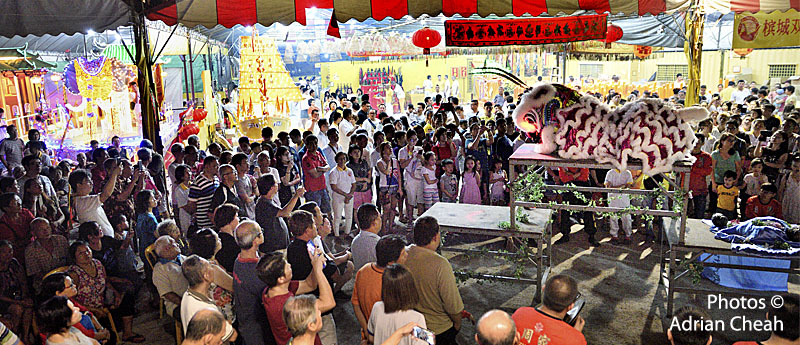

Finally, the grand celebration of Dou Mu’s birthday on the ninth day draws large numbers of devotees to the temple. The festival concludes with a solemn yet spectacular send-off for the Nine Emperor Gods, as they are ceremonially returned to the waterways at Pantai Bersih Beach, bringing to a close the nine-day spiritual journey.
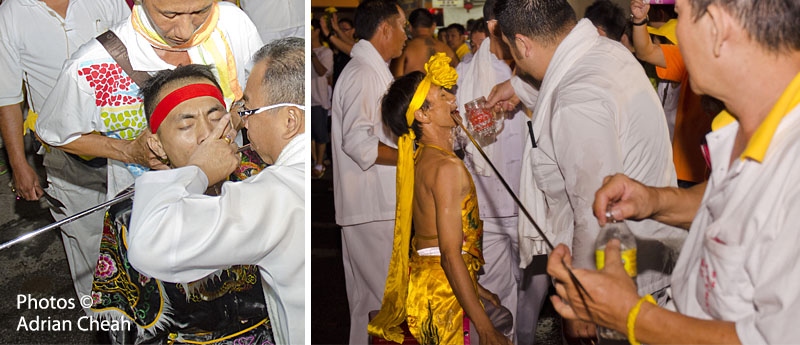

In an age when technology and science offer instant access to information, traditional practices and beliefs often face scrutiny, prompting many to question their relevance. Yet, despite the advance of modernity, the Nine Emperor Gods Festival continues to be celebrated in Penang with unwavering devotion and grandeur. Year after year, opulent temples overflow with tens of thousands of devotees, keeping this timeless tradition alive on an epic scale.

As a visitor to Penang, you might pause and ask, “Why?” Why such dedication to these ancient rituals in a rapidly changing world? To that, we in Penang would simply smile and reply, “Why not?” For within these traditions lie the soul of our culture, a living connection to the past that grounds us in the present, and a shared sense of community that binds us together in celebration.

Such festivals serve as powerful binding forces, bringing communities closer and fostering stronger ties and unity. They are, without a doubt, the vibrant threads woven into the rich social tapestry that makes Penang truly unique.
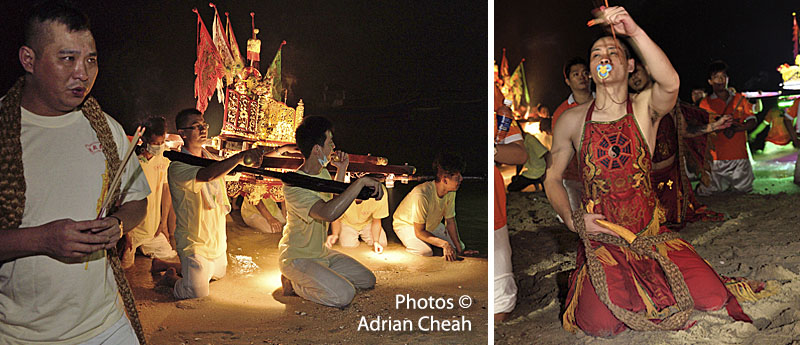
-------------------------------------
For more information on the activities at Tow Boo Kong Temple, contact +604 331 8717
-------------------------------------
Written and photographed by Adrian Cheah
© All rights reserved
Updated 3 October 2024